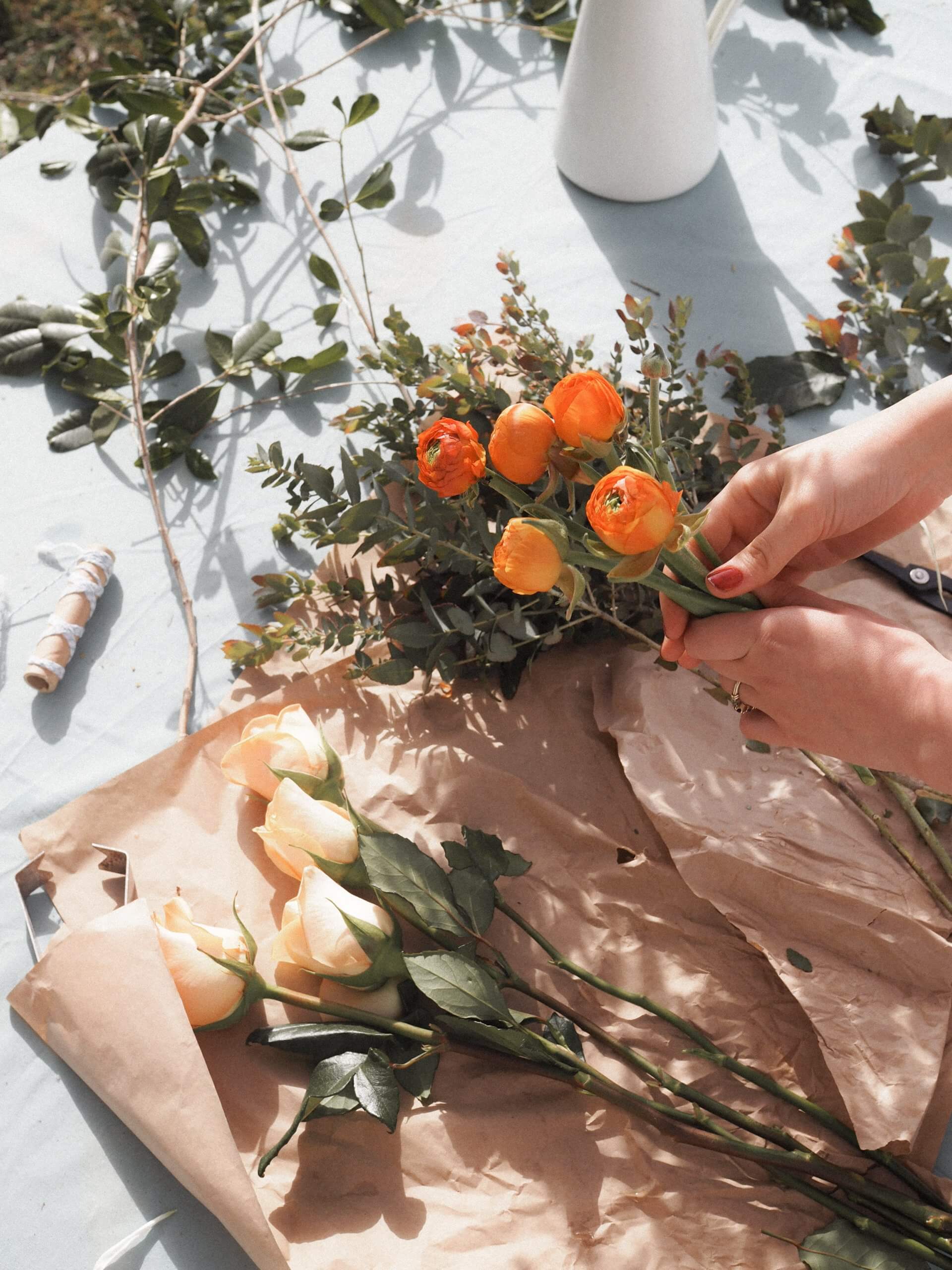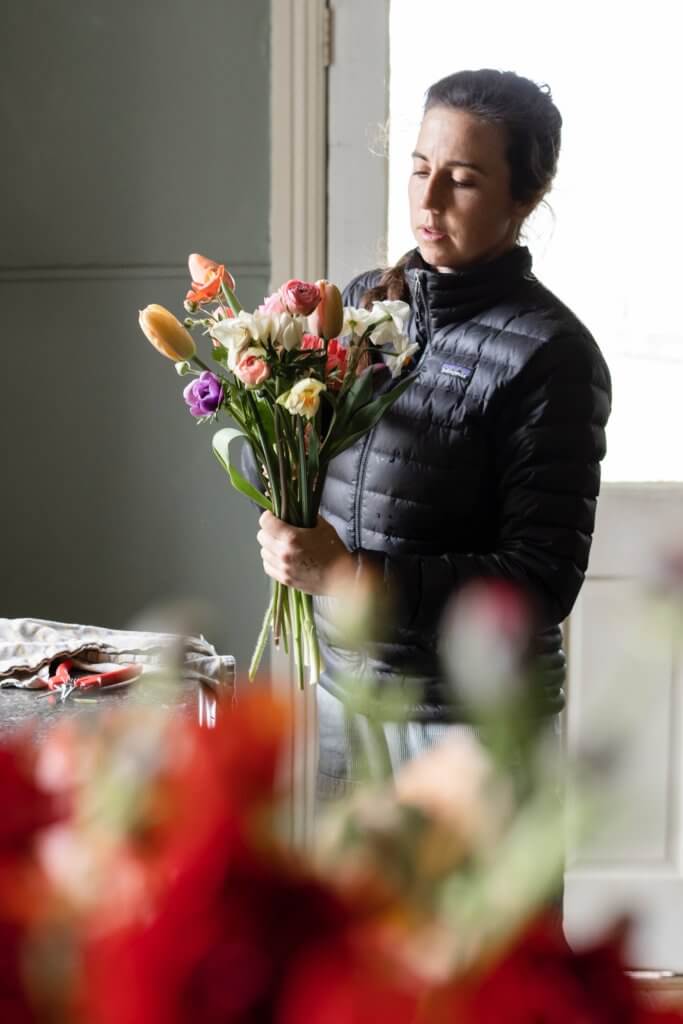What is a florist?
A florist is a professional who specialises in the selection and arrangement of flowers. They sell flowers, arrange and create bouquets for special occasions such as weddings, birthdays, funerals and events. As a florist, you’ll use your creative flair and knowledge of plants to arrange flowers to best meet the needs of your customers.
Many florists work for online flower retailers or independent shops.
Florists design and create arrangements of flowers in wreaths, bouquets, vases and centrepieces. Arrangements of flowers may include fresh flowers, dried flowers, ribbons and other decorative features.
What does a florist do?
Floristry is a business, so as a florist, not only will you be designing and preparing floral arrangements, but you’ll also be preparing quotes, taking orders and other business-related tasks. Typical responsibilities of a florist include:
- Arranging displays of plants and flowers to attract customers.
- Speaking with customers and helping to choose the right flowers and arrangements for their needs.
- Taking orders online or over the phone.
- Preparing arrangements for special occasions and events.
- Making sure plants and flowers are stored under the right conditions.
- Cleaning vases and keeping the shop tidy and presentable.

What skills are needed to become a florist?
Having a creative flair is beneficial to become a florist, but there are many other skills needed including:
- Time management and the ability to meet deadlines — you’ll be working for different customers and in busy periods will need to keep oragnised.
- Have an interest in plants and flowers — A passion for flowers and learning about the different types, and how to look after and care for them is important when helping discuss with customers what they are looking for.
- Have good people skills and customer service — You’ll be dealing with customers daily in-store, online and over the phone.
- Good eye for detail and creativity— You’ll use your creativity to come up with floral designs that suit your customer’s needs.
- Be able to work on multiple projects at once — florists are in high demand during peak times like Christmas and Valentines Day so you’ll need to be able to coordinate different tasks.
Eye for colour and design — often, customers will ask for advice and help on what colours and designs work best for certain events and occasions
What qualifications are required to become a florist?
There are no specific qualifications needed to become a florist, many employers will take on a trainee or apprentice as long as they have an interest in flowers and a willingness to learn. There are a few ways you can become a florist:
- A college course — such as Level 1 Certificate in floral Design, Level 2 Certificate in Floristry or Level 3 Extended Diploma in floristry. Entry requirements for these courses are typically 2 GCSEs for a level 1 course, 2 or more for Level 2 and 4 or 5 GCSEs for a Level 3 course.
- An apprenticeship — you can take an intermediate apprenticeship in floristry — this can take up to 2 years to complete.
- Direct through work — you can start as an assistant in florists and learn on the job.
Steps to becoming a florist?
Step 1: Gain some experience in floristry:
Whilst florists don’t rquire professional training or qualifications it can be beneficial to gain some experience to find out if the role is right for you. You can work in a local florist or another customer service role to learn key skills. It can also be useful to learn more about flowers and plants.
Step 2: Become an apprentice:
Most florists start out as an apprentice, where you can work with a skilled florist to learn the key tricks and techniques. You’ll start out as a junior, building your customer service skills, answering the phone, taking orders, and practicing simpler designs. After some time, you can gain more responsibility and create some more creative designs.
Step 3: Start your career:
As you gain experience in the role and you florist design skills grow, you’re now in a position where you can either move to a management role as a store manager or specialise in an area. You can move into events e.g florist for weddings, or become a freelance florist, with the opportunity to start your own floristry business.

References:
1. https://www.momentumcareersadvice.com/the-monday-interview-so-whats-it-really-like-working-as-a-business-analyst/

